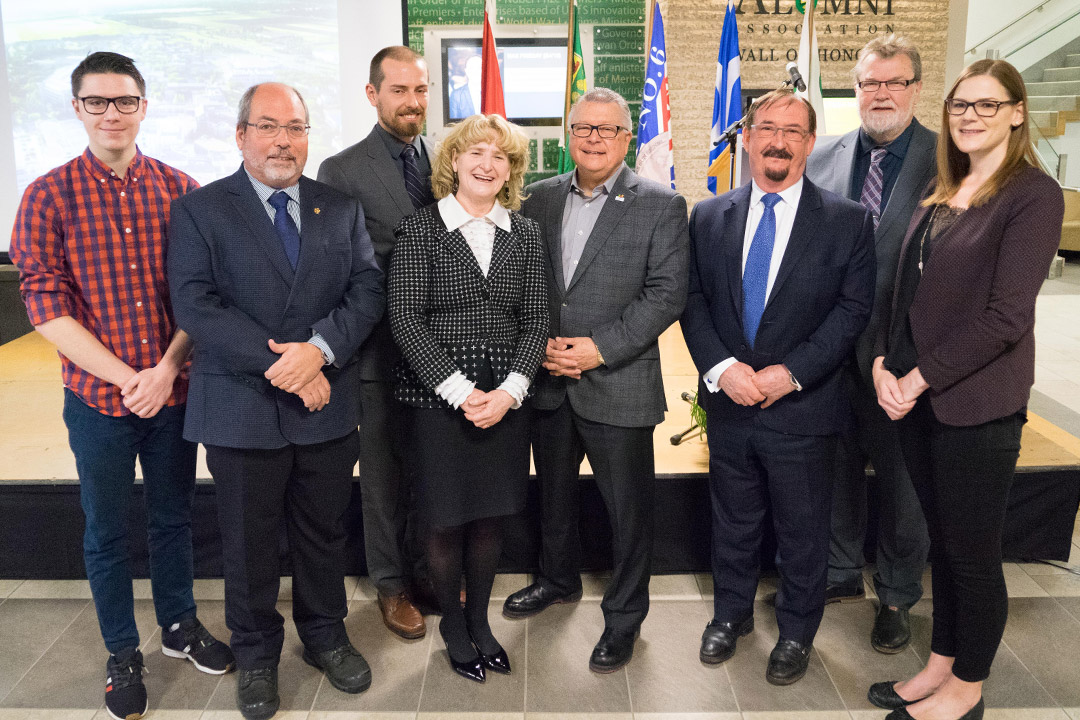
U of S institutes, researchers awarded $5.5 million in federal funds
The University of Saskatchewan has been awarded $2.7 million in funding from Western Economic Diversification Canada for water security and food security research, and a similar amount from the Social Sciences and Humanities Research Council (SSHRC) for 45 U of S faculty and students.
By University CommunicationsA $1.37 million grant for the Global Institute for Water Security (GIWS) to establish the Smart Water Systems Laboratory (SWSL) and a $1.35 million grant to the Global Institute for Food Security (GIFS) to create an Omics and Precision Agriculture Laboratory (OPAL) are part of what will be a $15.5-million investment in these signature areas of U of S.
“With the impact of climate change becoming starkly clear, food security and water security have emerged as key imperatives. The crucial federal investment toward these new state-of-the-art facilities will support cutting-edge research that will build a sustainable water future for Canada and help feed a hungry world,” said U of S Vice-President Research Karen Chad.
As researchers strive to mitigate environmental and water-related threats, the new lab will transform observation and data collection by using all-weather drones and developing new technology to track and measure water resources in cold regions that cover much of Canada.
“With this major investment, the U of S is developing some of the most advanced snow and water sensors in the world, and will use these sensors and Saskatchewan-made drones to bring Canada to the forefront of cold region water science and prediction,” said Global Water Futures Director John Pomeroy.
"The ability to fly more and larger platforms with more accurate and different sensors across Western Canada has the potential to transform our understanding of hydrological processes in this region," said Phillip Harder, a PhD candidate at the U of S Centre for Hydrology. "This is a very exciting opportunity for students who want to be on the forefront of the science that guides water management in western Canada."
OPAL will deliver innovative changes to agriculture through precise management of crop inputs such as water, fertilizer and chemicals at the right timer in the right place in a sustainable way to maximize yields.
“With the global population expected to reach 9.5 billion by 2050, Canada’s agriculture will be critical to world food security,” said GIFS Executive Director Maurice Moloney.
“We are grateful to the federal government for partnering with us on developing this major initiative that will greatly improve our ability to digitize plant traits. Using computational data and analysis enabled by this investment, we will dramatically enhance plant breeding in major Canadian crops.”
Tanner Dowhy, a graduate student involved in OPAL who analyzes massive data sets in order to identify root-associated microbes linked to crop performance, said this "funding presents an exciting opportunity for students from a range of disciplines to further contribute to the field of Omics and Precision Agriculture."

The 15 Insight and Insight Development Grants awarded by SSHRC cover the gamut of research, including:
- The impact of socio-economic, geographical and cultural factors on household food insecurity of Syrian refugees in Canada
- Political involvement and activism of Indigenous women in Canada’s West
- Creating consumer-oriented value in genetically modified foods and exploring consumer attitudes and willingness to pay
“The investment in social sciences and humanities research affirms the valuable contribution our researchers make in influencing public policies and helping Canadians to understand each other and our communities,” said Chad.

